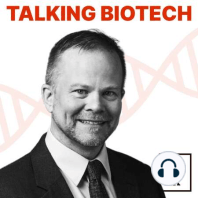61 min listen
Why Sweet Corn is Sweet
ratings:
Length:
46 minutes
Released:
Mar 9, 2018
Format:
Podcast episode
Description
When we think about corn, we usually think about sweet corn. It is a departure from its cousins that are grown on the vast majority of the acreage, the corn bred for use as animal feed and fuel. Sweet corn was specifically discovered and selected because of its sweetness. But how does a kernel of corn divert the resources used for starch production into simple sugars? Dr. Curt Hannah has been studying starch production over his 45 year career at the University of Florida. Along the way, he interacted with the University of Florida Sweet Corn Breeding Program down in Belle Glade, FL. The discussion covers the genetic differences between sweet corn and corn-corn that lead to sweetness, but also some of the issues with production, breeding, and genetic engineering.Follow Dr. Hannah at @FloridaCornMan# COLABRATalking Biotech is brought to you by Colabra – an R&D platform that brings your lab’s world-changing research together in one shared space. Learn more at https://www.colabra.app/# TALKING BIOTECHTwitter: https://twitter.com/talkingbiotechWebsite: https://www.colabra.app/podcasts/talking-biotech/Instagram: https://www.instagram.com/colabrahqThe Talking Biotech podcast is distinct from Dr. Kevin Folta's teaching and research roles at the University of Florida. The views expressed on the show are those of Dr. Folta and his guests, and do not reflect the opinions of the university or Colabra.
Released:
Mar 9, 2018
Format:
Podcast episode
Titles in the series (100)
Biotechnology in Uganda; Reflections on a Public Discussion: This week features two discussions with fellows serving in the Global Leadership Program of the Cornell Alliance for Science. The first part is a discussion with Nassib Mugwanya, Outreach Leader for the Ugandan Biosciences Information Center. He discuss by Talking Biotech with Dr. Kevin Folta
